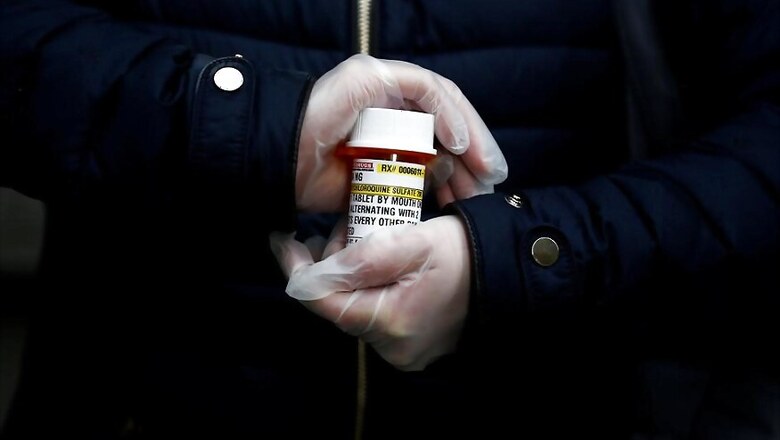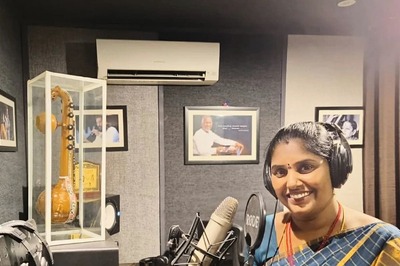
views
India has ramped up output of an anti-malarial drug hailed by US President Donald Trump as a "game-changer" in the fight against coronavirus, even as its pharmaceutical industry struggles to make other key medicines in a lockdown.
Drug companies have seen demand for hydroxychloroquine soar since March when Trump's remarks sparked a run on the medication and caused a global shortage – despite health agencies warning over its safety in the treatment of Covid-19.
But a nationwide lockdown in the world's biggest producer of generic drugs has hampered production with many factory workers stuck at home and most transport services halted.
India accounts for 70 per cent of the global production of hydroxychloroquine, which is also used to treat lupus and rheumatoid arthritis.
Despite the challenges, Indian companies have managed to export the medicine to 97 countries during the pandemic, the health ministry said.
Brazil, Germany and a number of South Asian and African nations are reported to have been among those to ask India for major supplies of the medicine as they deal with the contagion.
Trump said the United States had secured 29 million tablets after New Delhi bowed to pressure to lift a ban on exports.
To meet the growing demand, Ipca Laboratories, one of four key makers of hydroxychloroquine, is increasing output by a third to 130 million tablets a month in May – despite having only 40 per cent of its 18,000 workers on deck.
"It is a priority and we are producing it despite all the difficulties," joint managing director Ajit Kumar Jain told AFP.
"The biggest challenge in the last few weeks has been to organise production logistics and to motivate workers to come to the plants."
Ipca is arranging food, transport and shelter for many of its workers amid reports villages near some factories are stopping locals going to work over fears they could spread the virus.
Zydus Cadila, another major producer, said it would boost production tenfold to about 150 million tablets a month in May.
Drug Doubts
India's government considers hydroxychloroquine a legitimate treatment for Covid-19. It showed early promise against the deadly disease in small-scale studies in France and China to reduce virus levels among people badly infected and several other trials are underway.
But its effectiveness has been questioned and serious concerns have also been raised about potential side effects.
The US Food and Drug Administration has cautioned against using it for Covid-19 outside of a hospital or clinical trial due to the risk of heart problems.
A study in New York hospitals found no evidence the drug significantly affected the risk of death.
India exports about $20 billion of pharmaceuticals a year and increased production of hydroxychloroquine has come at the cost of making other drugs commonly used to combat diseases ranging from tuberculosis to cancer.
"Some of our other production has been hampered but (hydroxychloroquine) shouldn't get affected as that is the current need of India and world," said Jain of Ipca.
Himachal Drug Manufacturers Association president Rajesh Gupta said the sector was "in crisis" because of the lockdown, which began March 25 and is now starting to be eased.
On top of the labour problems, the soaring price of raw materials -- 70 per cent of which come from China – and transport had hit companies, Gupta told AFP.
"Many major raw material companies are now not even quoting prices and most companies have jacked up prices between 25 and 200 per cent," he said


















Comments
0 comment